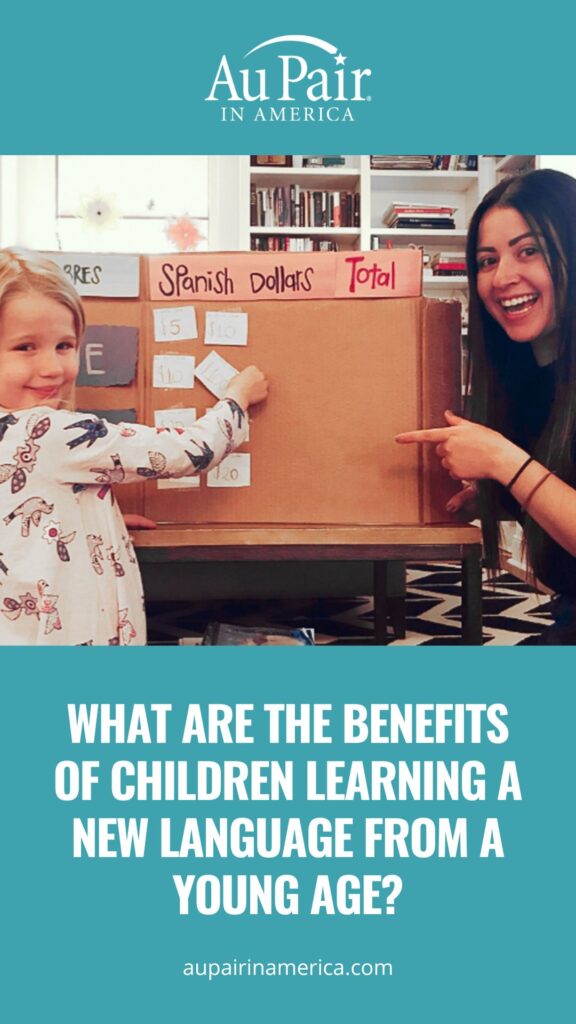Learning a new language at a young age has numerous benefits that can positively impact your child or children’s future. In today’s globalized world, knowing multiple languages is becoming increasingly important for personal and professional development. But how young is too young for language learning? It turns out that it is never too early. In fact, studies suggest that the easiest time to learn a new language is between the ages of 0 and 3, according to the University of Washington.
Here’s how learning a new language while young can benefit your children:
1. Build important connections.
Learning a new language is a great way to build a connection with a particular culture or help your children learn more about their family’s history. Learning another language can give your child the ability to form a deeper relationship with family members. Language learning can be an especially meaningful endeavor if your children can use what they learned to communicate directly with family members. Let’s say, for example, your children have a grandmother who is a native German speaker, and she knows very little English. By exposing your children to German vocabulary at a young age, you’re giving them the chance to connect directly with their relatives. Giving your children the gift to connect with their heritage is invaluable.
2. Boost brain function.
Research shows that language learning can improve cognitive function, particularly in the areas of problem-solving, memory, and critical thinking. Some studies have suggested that dual language learners perform better than their monolingual peers in reading and math. By introducing your child to another language at a young age, you’re helping to set them up for success in the classroom and beyond. The brain is also more receptive to language acquisition during the early years, making it easier for children to learn multiple languages.
3. Develop social skills.
Language learning can also broaden your child’s cultural horizons. Language and culture are inherently intertwined, and learning a new language can provide a window into a different way of life. It can expose children to different traditions, customs, and perspectives, which can help them become more empathetic and understanding individuals.
Learning a new language at a young age can have many benefits for your children.
It can help them build connections, improve cognitive function, increase empathy and social skills, and prepare them for future success. Hosting an au pair is an excellent way to introduce your child to another language and culture. Your au pair can provide real-life language exposure through conversation, songs, games, and other interactive activities – perfect for young children who learn best through play and exploration!
One of our host parents shared her experience hosting au pairs from three different language backgrounds – German, Spanish and Mandarin: “At 4½ years [old], learning languages is just pure fun […] Our au pairs are giving our girls a gift of a lifetime, and we are so humbly grateful for these opportunities!”

